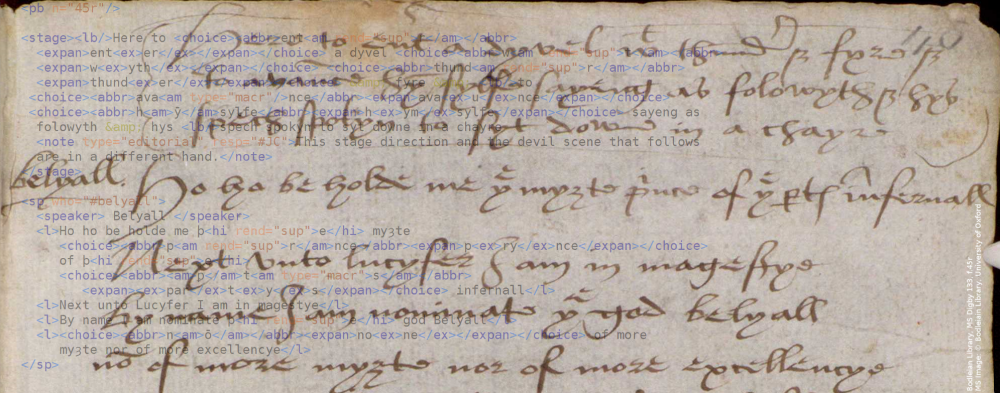It has been over a decade since Michael Wesch, Professor of Cultural Anthropology at Kansas State University had a viral hit (for those days) with The Machine is Us/ing Us. (Original (31 January 2007) and Final Version (8 March 2007)).
Even though it has been over a decade, it is still a useful video that I sometimes show people. Perhaps it was geared a bit too much to problematise the contributory nature of so-called “Web 2.0” (Wait, what version are we on now? Was that just marketing hype?), but he is a professor of Cultural Anthropology.
One of the the bits I like is the opening where he writes, erases, and rewrites forming quite easily the notions that:
- Text is linear
- Text is unilinear
- Text is said to be unilinear
- Text is often said to be unilinear
- Text is unilinear when written on paper
The ease at which he does shows the flexibility of mise-en-page Then the transformation to digital form where he creates:
- Digital text is different.
- Digital text is more flexible.
- Digital text is moveable.
- Digital text is above all …. hyper.
- hypertext is above all….
- hypertext can link
The process of writing and the nature of text and our relationship to it has changed dramatically with the ever-increasing introduction of the digital to our lives. This clearly has good and bad aspects. As the video continues to show us how structured text is data and this can be used in all sorts of unexpected ways, it perhaps seems a bit naive to our eyes — from a world where we assume that every click is giving a commercial company untold reams of data about us. Wesch ends the video after exploring the nature of structured text and the kinds of things it enables in a “web 2.0” world and how we end up teaching the machine, stating that we’ll need to rethink a few things. He lists copyright, authorship, identity, ethics, aesthetics, rhetorics, governance, privacy, commerce, love, family, ourselves.
Another video Wesch published later (12 October 2007) “Information R/evolution” followed a similar form of construction but was much less popular over time. In this video he shows that the assumptions we make about the categorisation of information on paper (and some other media) breaks down as we create enormous amounts of digital information. The more shaky camera work perhaps being a trivial reason why the public took to this one less. However, I continue to show these to people as examples, and to get the to think about the way we conceive of text and data in a digital world.

